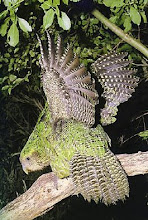Uzbek word structure, like in the other Turkic language, is agglutinative - which means that there are a lot of bound morphemes (affixes) bundled together synthetically into one word. For example, the Uzbek word 'ilojsizliklari' "their impossibility" is made up of :
iloj - possibility
siz - without, 'less'
lik - abstract morpheme 'ness'
lari - third person plural possessive affix
The Turkic languages have a crazy rich morphemic system compared to English's starved one. An easy way to think about it is to imagine that most words in Uzbek/Turkish/Karakalpak/etc are like the English 'antidisestablishmentarianism', super long but made up of distinguishable smaller parts which contribute to the meaning of the whole word.
Tense, mood, aspect, etc are all put together in the verb in this way. The verb boshlanmoq 'to start' becomes
boshlandim "I started"
boshlangan emish "Supposedly he started"
boshlanayapsiz "You are starting right now"
boshlanaman "I will start"
boshlanmoqchimiz "We want to start"
Just a taste of the wonders of Uzbek agglutination!
Sunday, February 22, 2009
Subscribe to:
Comments (Atom)
